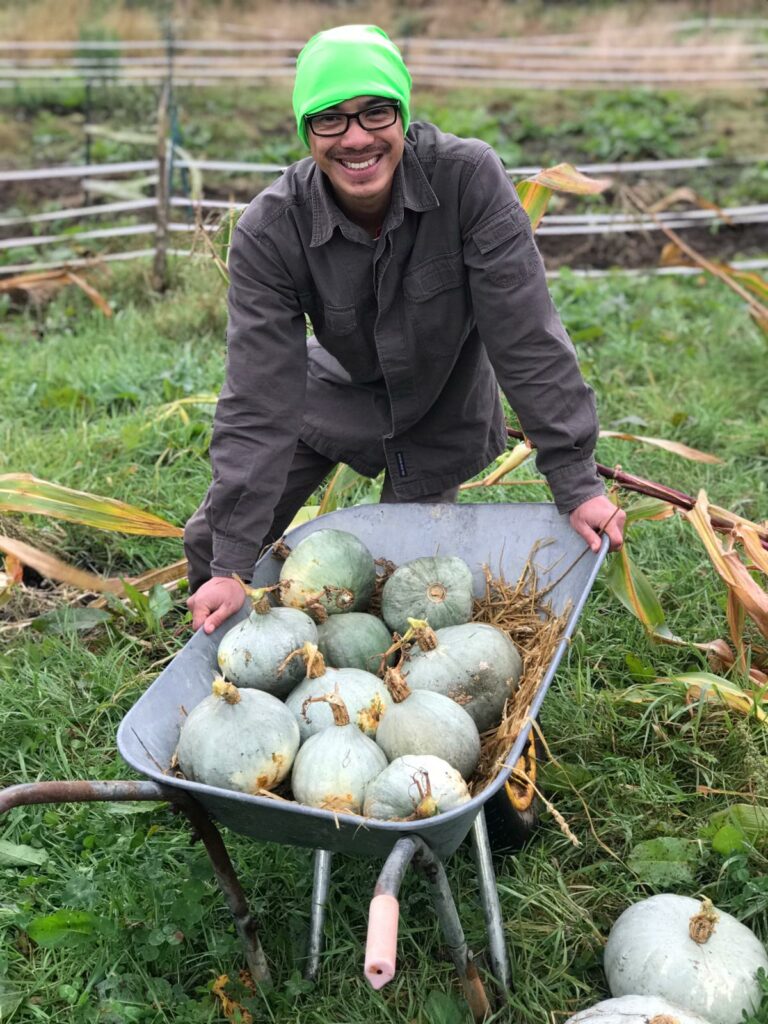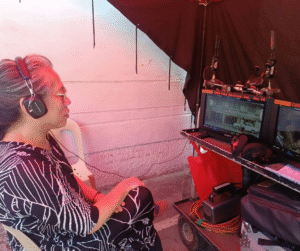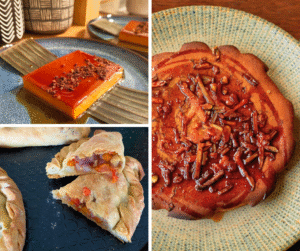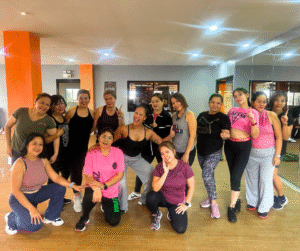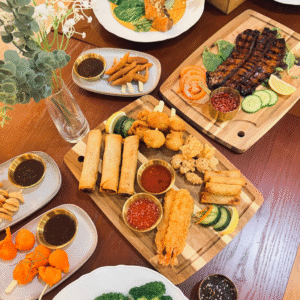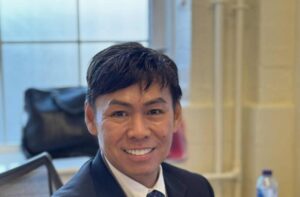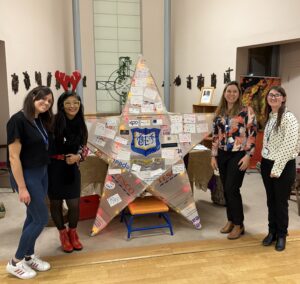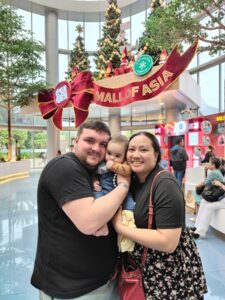By Ryan Anthony M. Bestre
In a matter of four months, I got to live on a farm, enjoy the friendliness of Glaswegians, meet 24 pet pigs, spend Christmas in Alderney, and do some building work for an eco-house. All thanks to Workaway, a platform for cultural exchange, working holidays, and volunteering.
In 2020, I flew from the Philippines to the UK to do a master’s degree in Climate Change and International Development. But due to the pandemic, I felt I wasn’t fully immersing myself in British life and culture. Workaway provided that chance to get up close and personal with British ways, so to speak.

“I want to live on a farm,” I remember telling a new friend I met at the University of East Anglia where I was doing my degree. I have always been interested in the food system and sustainable agriculture. In fact, that was one of the modules I enrolled in. My friend then told me about Workaway. It allows members to arrange homestays, with volunteers helping out their hosts in exchange for food and lodging. So I looked it up and I thought it was a perfect set-up for me. Aside from being an affordable way of traveling around the UK, it would give me an opportunity to get an insight into British life.
Volunteering on a community farm
My Workaway journey started at Stanford Hall CSA, a community-supported farm in Leicestershire. The farm follows ‘no-dig’ biological principles and low-impact building projects, as well as provides vegetables and educational activities for local members – schools, community growers and families. These were the things I had been learning from my course and I wanted to experience them firsthand. The farm simply needed general help around the farm so I went for it.
I remember waking up in the yurt, a round tent, which served as my bedroom, looking forward to what the day could bring. During my stay, I mostly took part in harvesting vegetables like potatoes, carrots, butternut squash (of different varieties), beetroot, swede, and leeks. Sometimes, we would do some weeding, propagating, transplanting, and seed-saving.
Workaway hosts tend to be open to people from all backgrounds and it could be, as I discovered, because they’re often well-traveled and have been exposed to different places and different cultures.
I was also on animal care duty feeding pigs, chickens, and ducks. There was also building work required, such as finishing a round house which would eventually become a communal and activity area. I am new to construction work so I was totally lost, as you can imagine. But the farm staff and other volunteers were very supportive and encouraging, patiently teaching me how to use an axe, a saw, and other power tools. I felt accomplished after managing to install some roof planks on the structure.
A month in the farm went by so fast. Mondays and Fridays were harvest time but other than that, activities were pretty varied and flexible throughout the week. Food was collectively prepared and sourced fresh from the farm. All the days were filled with good food and good conversations with good people, my kind of people.
It was the people that made my stay very memorable. Those running the place showed what off-grid community living is, attracting volunteers like me who are equally passionate about sustainable, low-impact lifestyles.
Joining COP26 in Glasgow
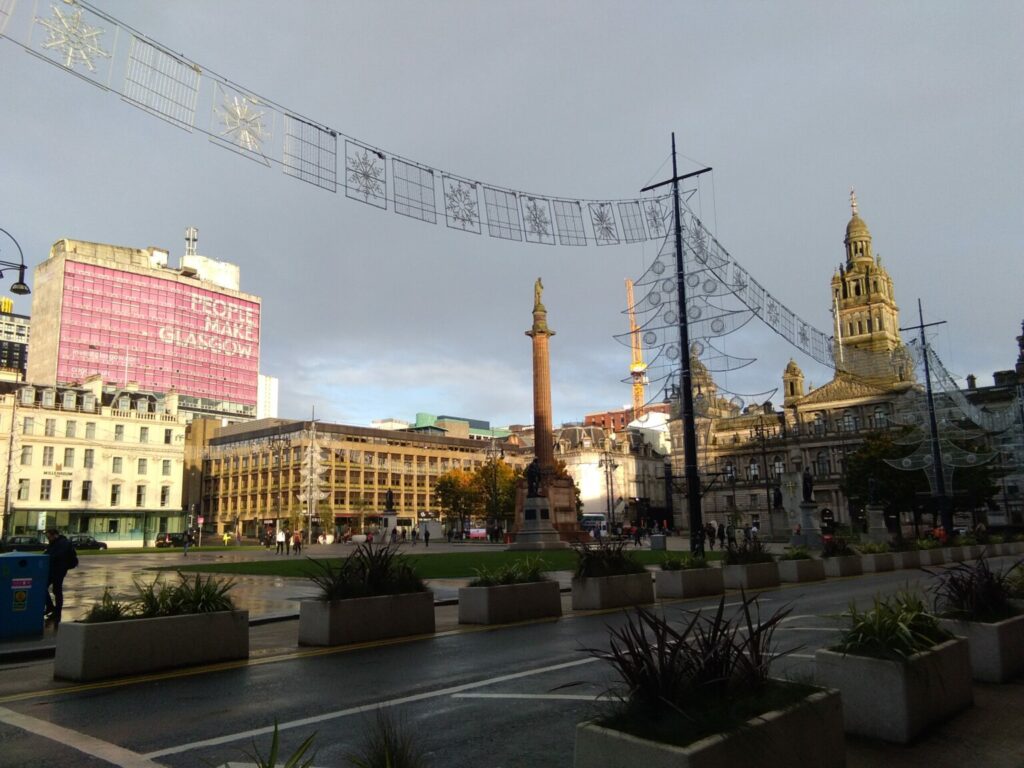
From a slow, laidback place, I headed to the buzzing city of Glasgow, mainly to volunteer for the COP26 Climate Conference. Luckily, I found another Workaway host, a local Scottish couple, Neil and Louisa. Neil is an IT professional and Louisa is a Spanish and French teacher. They gladly welcomed me, a complete stranger, into their home. I asked how they can be so trusting. I could be a random crazy guy for all they know. But they said, in life, you have to take risks.
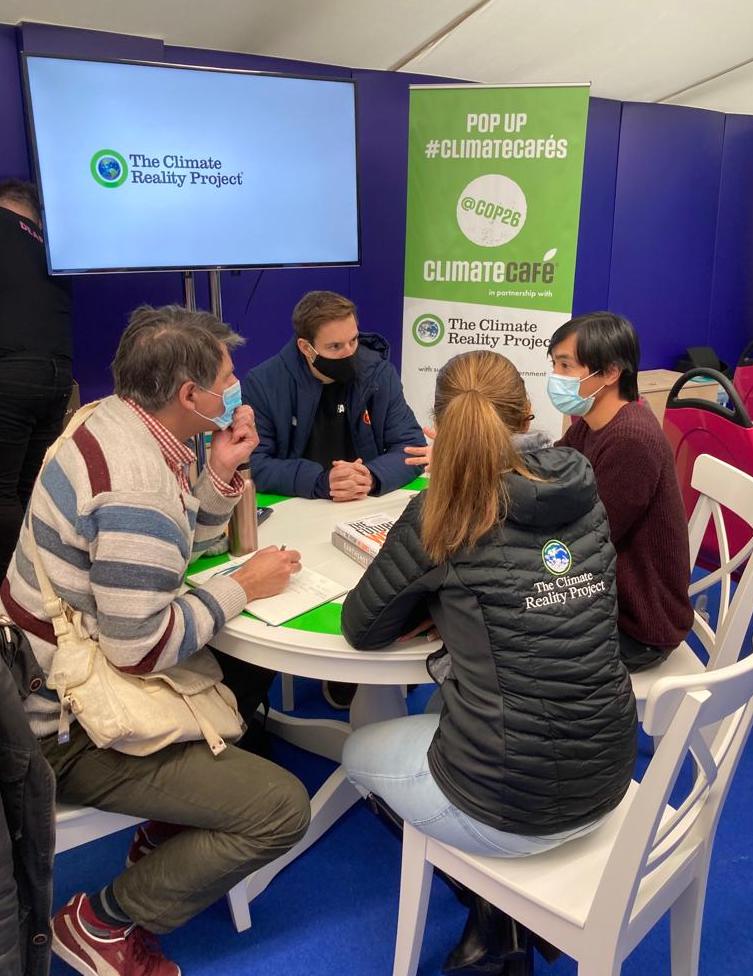
Workaway hosts tend to be open to people from all backgrounds and it could be, as I discovered, because they’re often well-traveled and have been exposed to different places and different cultures. Perhaps I can say the same thing of myself. We are citizens of the world, embracing diversity and seeing the beauty in that.
While I volunteered during the day at COP26 events in Glasgow, I also did some weeding and cupboard-organising for Neil and Louisa. The rest of the time I spent talking to them over a cup of tea (yes, drinking tea is a British habit I have now acquired) and eating excellent dishes they both prepared for me. I learned that the Scottish people are the friendliest in the UK – at least, that I could attest to. I am particularly fond of their accent and their humour. Like Filipinos, they are often patriotic, family-oriented, and fun-loving which made them easy to relate to.
Pet pigs, Pinoy Christmas and sustainable building
I was pleasantly surprised when two Workaway hosts contacted me directly, inviting me to stay with them. In Norfolk, I assisted Fiona in tending to her 24 pet pigs. Pre-pandemic, she used to run a bed and breakfast, but now she mostly devotes her time to looking after the pigs. That may seem unusual for some people but not for Fiona who truly has a big heart for animals. She also has a horse, a goose, chickens, and two dogs. She does her best to care for all of them. On top of that, she raises funds for animal charities. One of the best things about staying with Fiona was sampling the cakes she bakes herself.
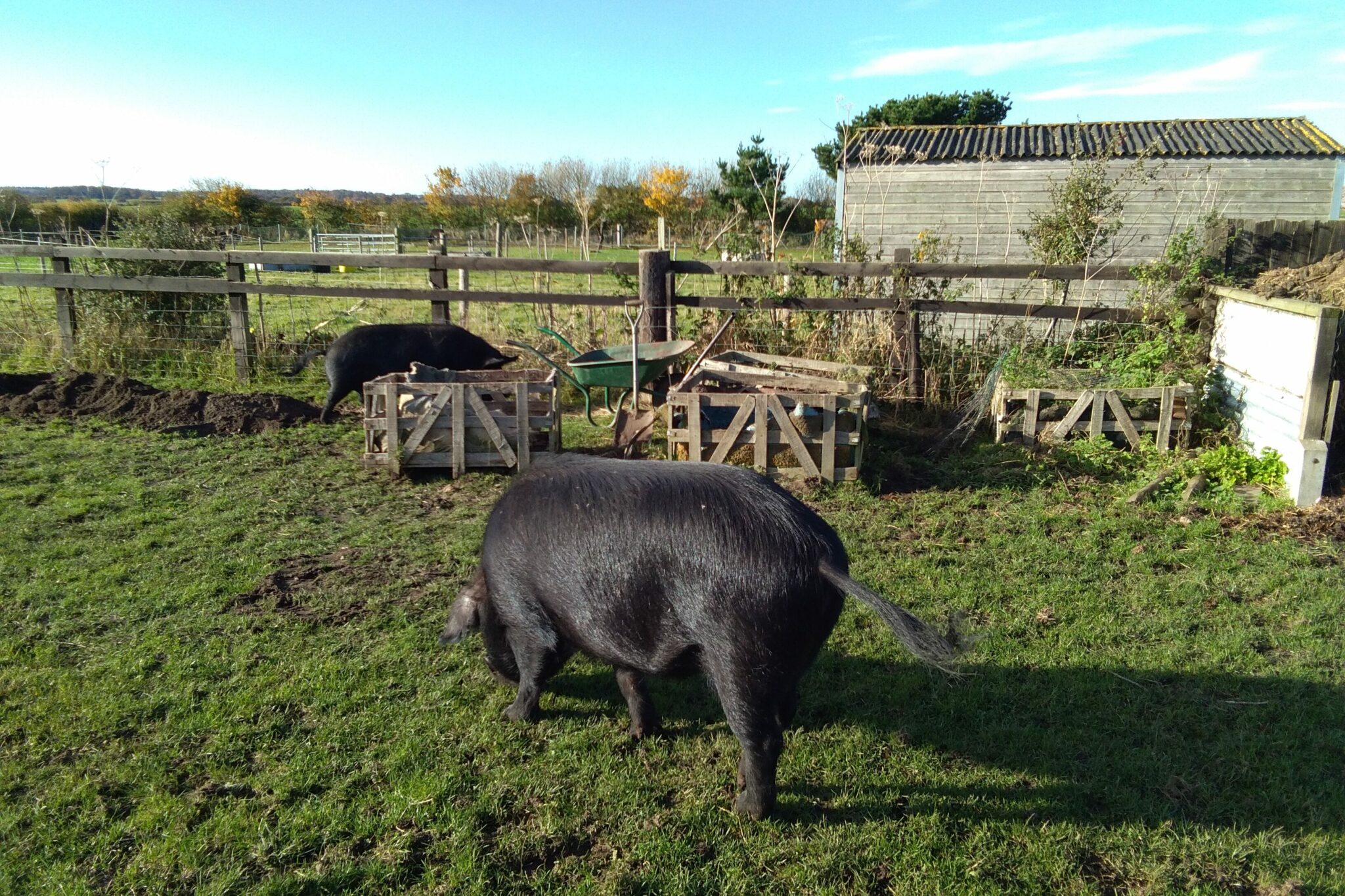
Over the Christmas holiday, I flew to Alderney which is part of the Bailiwick of Guernsey in the Channel Islands. This time, I had to look after the seven-year-old son of Leslie, a Filipina nurse. Being in a Filipino household felt like being back home. Leslie and I spoke in our language and ate Filipino food. That meant a lot of rice and meat dishes. The Philippines is known for its festive Christmas and New Year celebrations so I was happy I got to experience that Pinoy touch here in the UK.
More than the places that I was privileged to see and the honour of being fed by gracious hosts, what I treasure the most from my whole Workaway journey is the connections I was able to establish with lovely individuals. I shared a bit of myself and my culture and at the same time, it was a delight to hear more about the life stories of all my hosts.
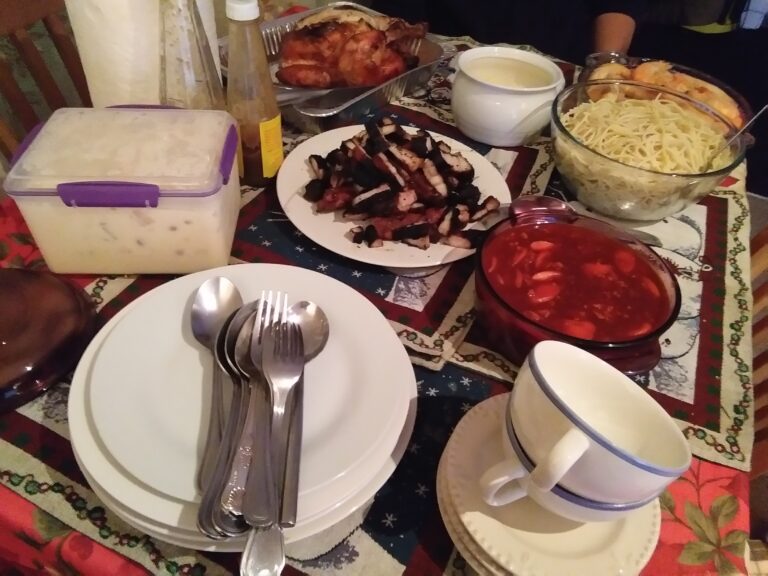
My final Workaway placement was in Torquay, Devon where I met Peter who was converting his house into flats using upcycled and eco-friendly materials. I helped install window wall plaques, put up a green wall on the trunk of a dead tree, and organise rooms. In everything Peter does, he always tries to follow the ways of nature. His passion for sustainability and the environment was truly inspiring.
Being open to people and to possibilities
Even more than the places that I was privileged to see, and the honour of being fed by gracious hosts, what I will treasure most from my Workaway journey is the connections I was able to establish with lovely individuals. I shared a bit of myself and my culture and at the same time, it was a delight to hear more about the life stories of all my hosts.
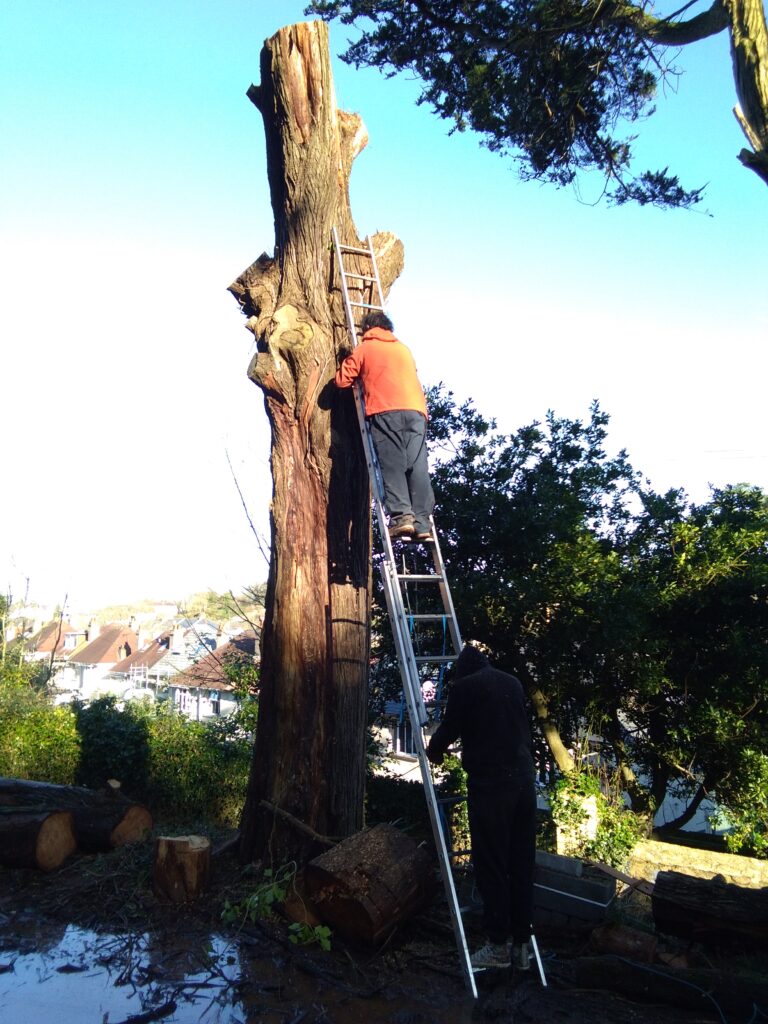
I realised that we are not so different after all. We have small differences, of course, but at the end of the day, we all have the desire to be happy and to make the most of the life we’ve been given. One would think that as a developed country, it is all fine and dandy here but the UK has its own challenges as well. They have their own kind of poverty like the issue of homelessness, for example. And, unsurprisingly, they also complain about the blunders of government leaders.
“You haven’t met yourself yet. But the advantage of meeting others in the meantime is that one of them may present you to yourself.” I always remember these lines from Richard Linklater’s film, “Waking Life.” Perhaps I decided to embark on this journey because I’m on a constant path of self-discovery. By being open – to people and possibilities – not only am I discovering new things about myself but I’m also gaining rich experiences, valuable memories, and lifelong friends.
About the author
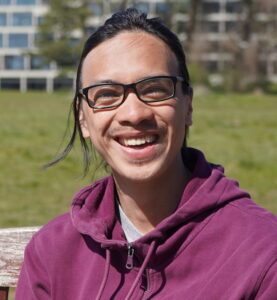
Ryan has just completed his MSc Climate Change and International Development at the University of East Anglia, as a Chevening Scholar. He is an environmentalist who used to work for a renewable energy company. He volunteers for Greenpeace and is a Climate Reality Leader of the Climate Reality Project.

